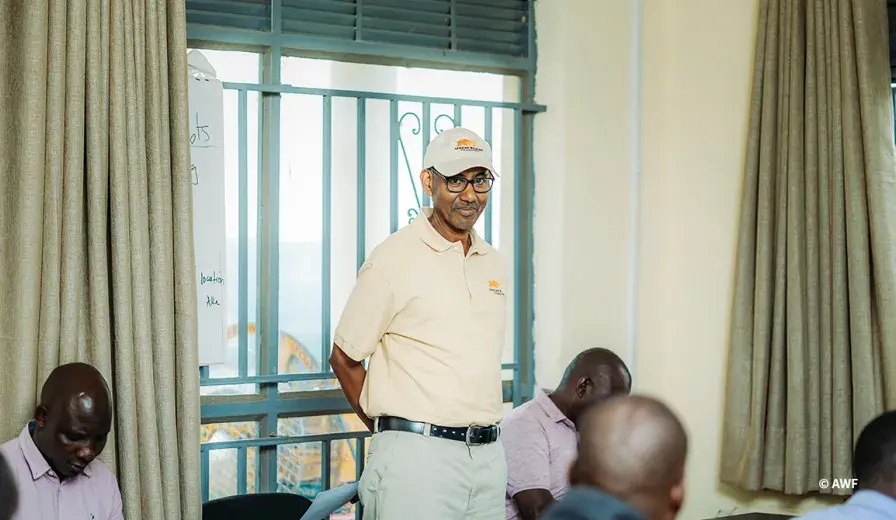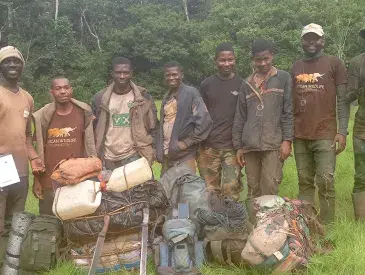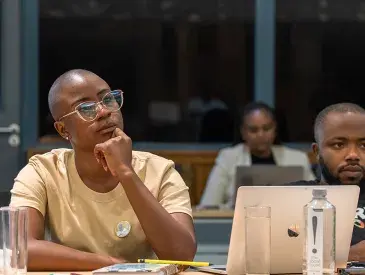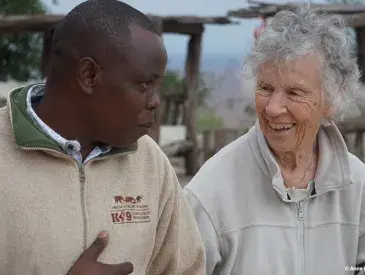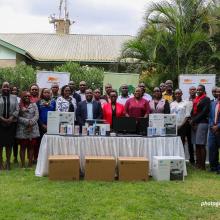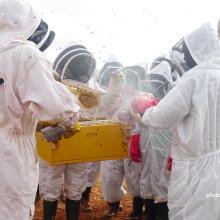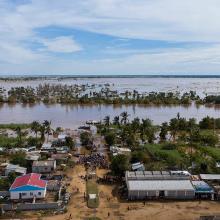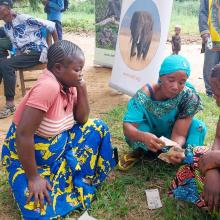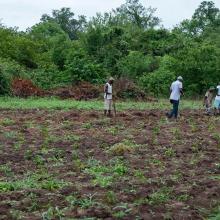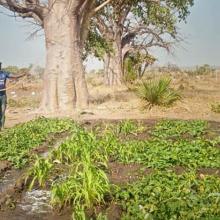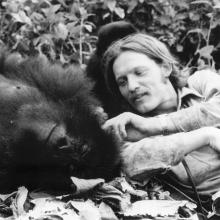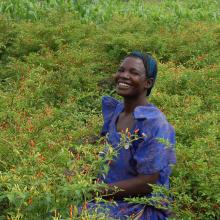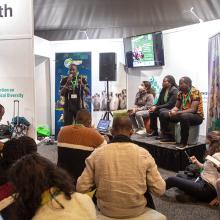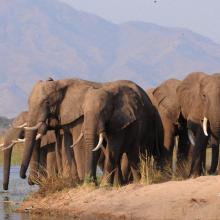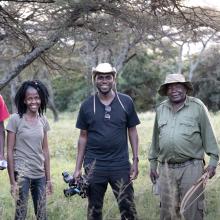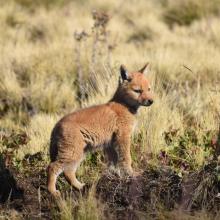Field Journal
Chance Conservationist: Patrick Agaba’s Transition from Political Science to Conservation
March 19, 2024
Recent Articles
Why we need new systems to recognize biodiversity and ecosystem services
May 22, 2023
Wellington Matsika
AWF trains Kenya Wildlife Service experts on electronic case and evidence management
May 19, 2023
Noella Mumba
Beehive fences: Sustainable solution to human-wildlife conflict in Tsavo
May 19, 2023
Noella Mumba
Why media should prioritize climate change messaging
May 11, 2023
Kaddu Sebunya
Diversifying food systems to combat food insecurity for Indigenous communities in Cameroon
May 11, 2023
Noella Ngunyam
A woman chief in DRC leads community conservation for local development
May 8, 2023
Rachel Emisave
Managing natural resources reduces human-wildlife conflict in Zimbabwe
May 2, 2023
Ndanatsiwa Tagwireyi
Earth Day is every day for this tree-planting community in Cameroon
April 26, 2023
Noella Ngunyam
Earth Day 2023: AWF invests in our planet through conservation education
April 24, 2023
Yvonne Ayesigye
Chance encounters turn into a decades-long conservation career
April 20, 2023
Craig R. Sholley
Earth Day 2023: Investing in people to invest in our planet
April 20, 2023
Mike Seay
Campaign rallies young Africans to implement biodiversity framework
April 19, 2023
Eileen Kairu
World Heritage Day 2023: Celebrating Africa’s rich natural history
April 18, 2023
Harleen Sehmi
African Conservation Voices films show how wildlife conservation supports livelihoods
April 6, 2023
Harleen Sehmi
Critically endangered Ethiopian wolf population grows amid challenges
March 31, 2023
Brian May
